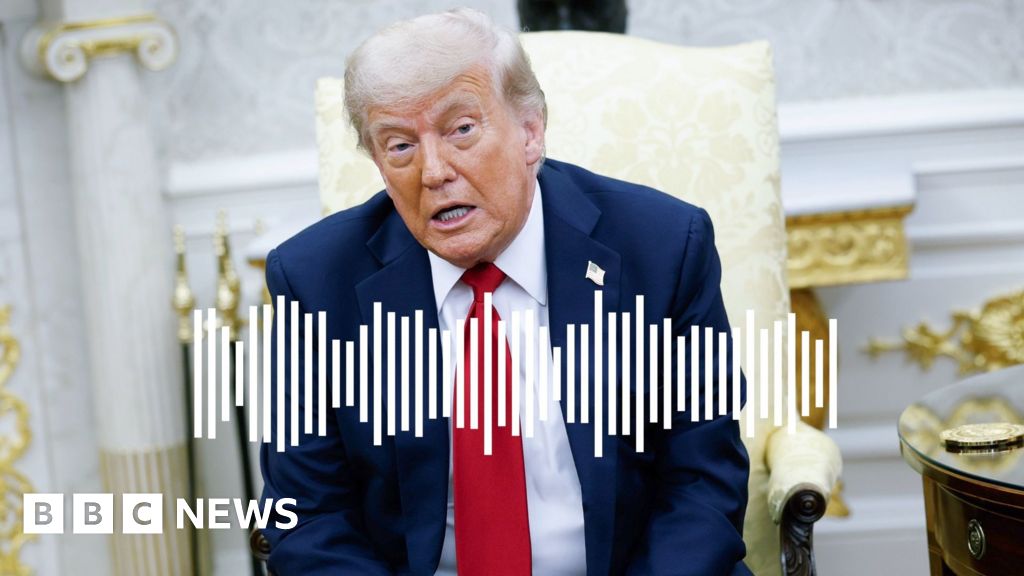 |
|
This brief article highlights a fracture, or at least a perceived one, in the relationship between former US President Donald Trump and Russian President Vladimir Putin. The core of the matter seems to revolve around the ongoing conflict in Ukraine and the lack of a ceasefire agreement. Trump expressing disappointment suggests an expectation, perhaps even an understanding, that Putin could or should have done more to bring about peace. This is a significant statement, given the past scrutiny and accusations surrounding Trump's relationship with Russia and Putin in particular. Critics have often alleged a level of undue influence or at least a reluctance on Trump's part to criticize Putin directly. Therefore, this admission of disappointment could be interpreted in several ways. It might be a genuine expression of concern for the situation in Ukraine, a strategic maneuver to distance himself from Putin amidst growing international condemnation, or a calculated attempt to project strength and leadership. The ambiguity inherent in Trump's statements allows for multiple interpretations, further fueling speculation and analysis. The article's brevity unfortunately limits the depth of understanding. We are left to infer the reasons behind Trump's disappointment and the extent to which it truly impacts their relationship. The statement that Trump is "not done with" Putin adds another layer of complexity. Does this imply continued communication, potential future collaboration, or simply a recognition of Putin's ongoing importance on the global stage? Without further context, it is difficult to ascertain the true meaning of this statement. The link to the exclusive interview promises more detailed information, but the article itself only provides a tantalizing glimpse into the evolving dynamics between these two powerful figures. The geopolitical implications of their relationship are substantial, given Russia's role in international affairs and the potential for US-Russian cooperation or conflict. Trump's views on Putin and the conflict in Ukraine therefore hold considerable weight and warrant close attention. The article, while concise, serves as a reminder of the intricate and often unpredictable nature of international relations. It underscores the importance of carefully analyzing the statements and actions of world leaders, particularly in the context of ongoing conflicts and geopolitical tensions. The relationship between Trump and Putin remains a subject of intense scrutiny, and this brief exchange offers a small but potentially significant insight into its current state.
Further elaborating on the geopolitical implications, it's crucial to consider the broader context of the Russia-Ukraine conflict. The war has reshaped the global landscape, leading to significant economic sanctions against Russia, a strengthening of NATO alliances, and a humanitarian crisis of immense proportions. Trump's perspective on this conflict, and his relationship with Putin, therefore carries significant weight. His actions and statements can potentially influence the course of the war, the international response to Russian aggression, and the future of US-Russian relations. The fact that he expresses disappointment suggests a shift, however subtle, in his previous stance. It could indicate a realization of the gravity of the situation, a change in his political calculations, or simply a pragmatic response to the overwhelming evidence of Russian culpability. The interview, promised in the article, will likely shed more light on his motivations and his vision for resolving the conflict. The ambiguity surrounding Trump's statement, "not done with" Putin, is particularly intriguing. It raises questions about the potential for future dialogue, negotiation, or even cooperation between the two leaders. Despite the widespread condemnation of Putin's actions, Trump's willingness to maintain contact suggests a belief that some form of engagement is still possible. This could be based on a strategic assessment of Russian power and influence, a desire to explore potential diplomatic solutions, or simply a personal connection that transcends political differences. Whatever the reason, it underscores the complex and often contradictory nature of international relations. The future of the Russia-Ukraine conflict remains uncertain, and the role of external actors like the United States and its former President Trump will continue to be crucial. Understanding the nuances of their relationships, their motivations, and their potential actions is essential for navigating this turbulent period in global history.
To analyze Trump's 'disappointment' further, one must look at his past rhetoric and actions regarding Russia and Putin. Before and during his presidency, Trump often expressed admiration for Putin's leadership style and questioned the narratives of Russian interference in US elections. This historical context makes his current expression of disappointment somewhat surprising, although it could be viewed as a pragmatic adaptation to the evolving geopolitical landscape. Perhaps Trump realizes that maintaining a close alliance with Putin is no longer politically viable, given the international outrage over the Ukraine conflict. It is also possible that Trump genuinely believes that Putin has failed to live up to some implicit agreement or expectation regarding the conflict's duration or severity. The phrase 'not done with' is equally open to interpretation. It could signify Trump's belief that he still possesses some leverage or influence over Putin, or that he sees potential opportunities for future collaboration despite the current tensions. It is also possible that Trump is simply hedging his bets, leaving open the possibility of a future rapprochement with Russia should the political winds shift. Ultimately, understanding Trump's true intentions requires a deeper dive into his mindset, his political calculations, and his strategic goals. The promised interview will be crucial in deciphering the underlying motivations behind his seemingly contradictory statements. The future trajectory of US-Russian relations will depend, in part, on how Trump chooses to navigate this complex landscape and whether he can reconcile his personal views with the broader geopolitical realities.
Source: Listen: 'I trust almost nobody,' Trump says when asked about Putin
